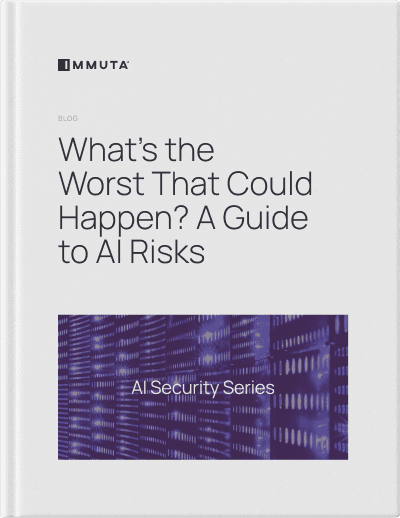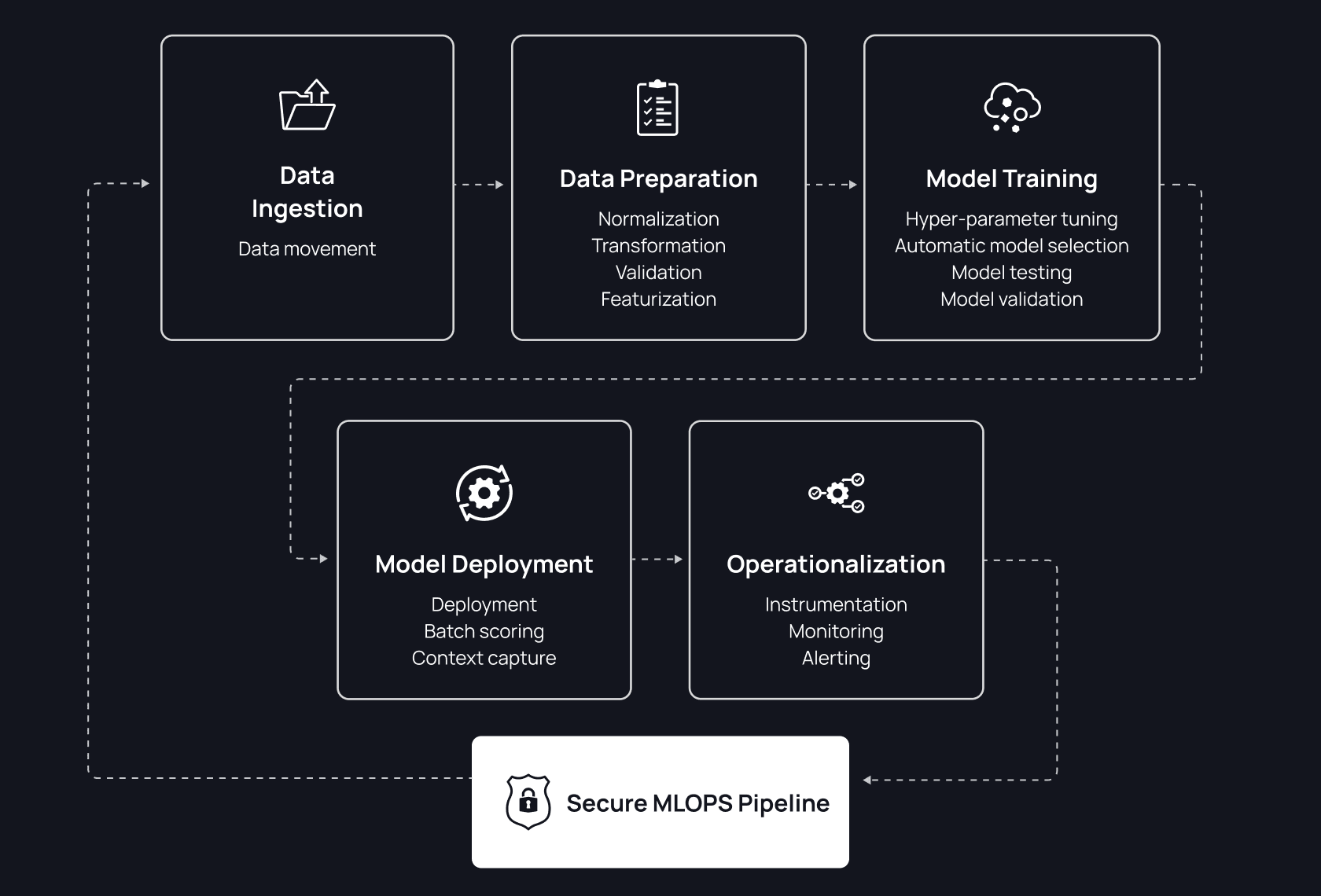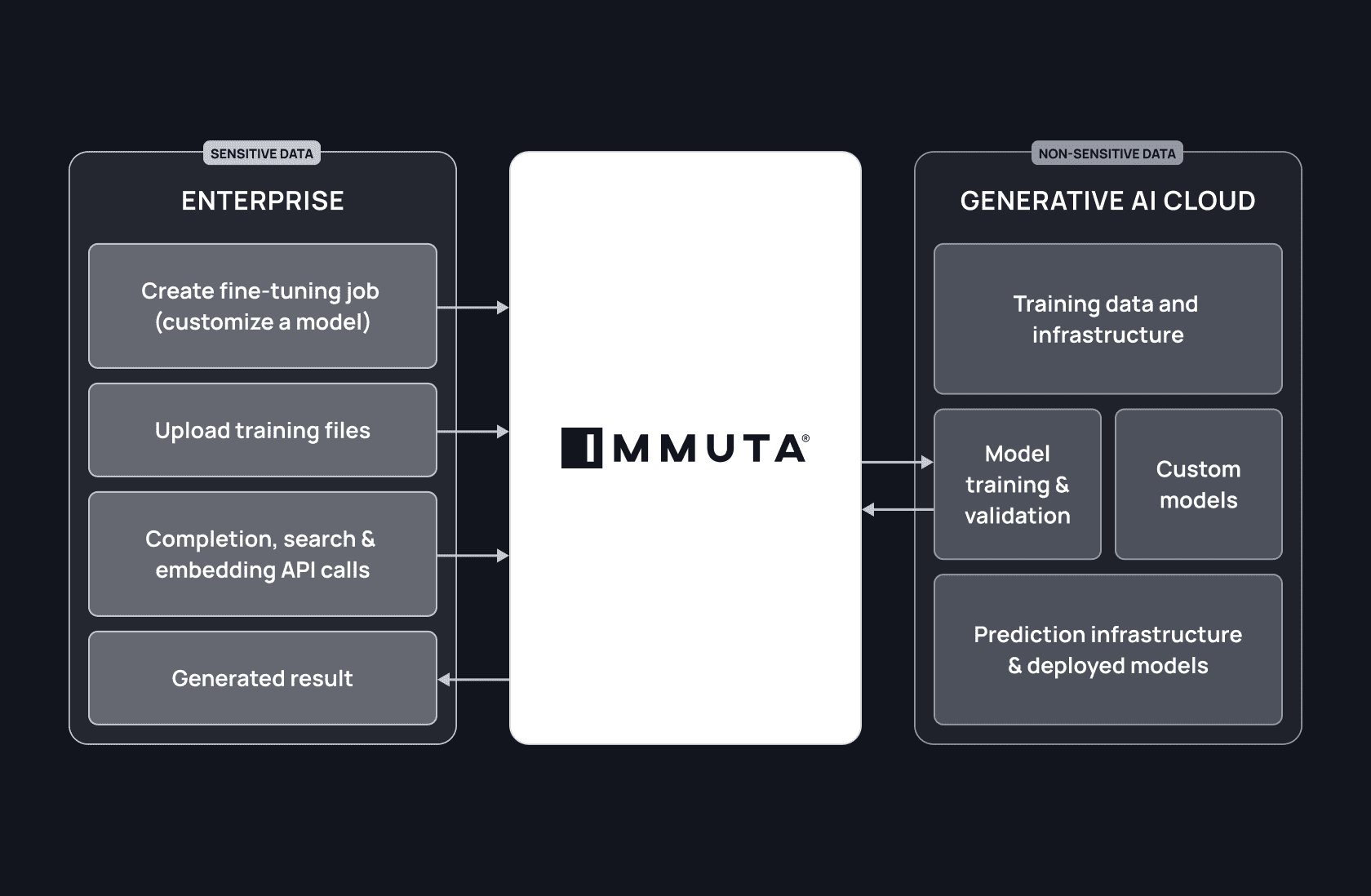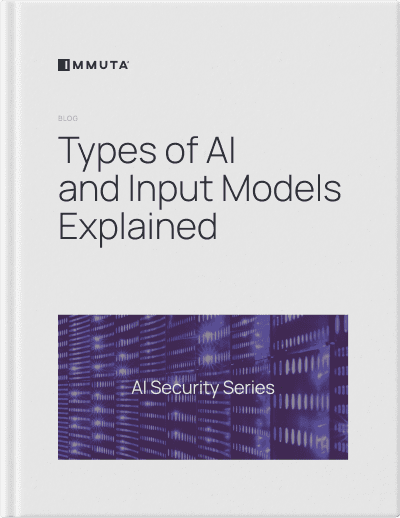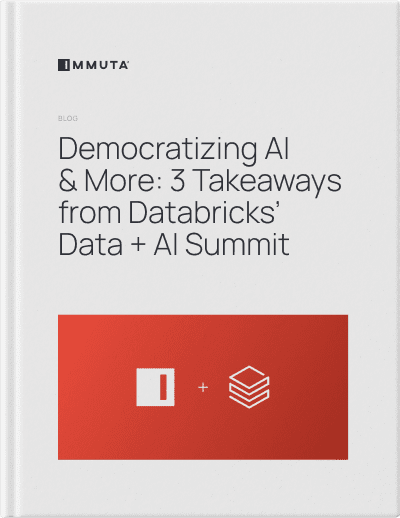“Implementation of machine learning ops using the platform has enabled shorter development cycles, which has resulted in shorter times-to-market. It also has the ability to detect and act on new patterns related to fraud, suspicious behavior, and so on, as well as providing us with the ability to utilize green cloud providers to minimize environmental impact.”
AI is Changing How We Work
AI has enormous potential, from traditional AI and machine learning, to new use cases leveraging generative AI and LLMs. More than 50% of organizations expect to use AI in the next two years, and 40% will increase their investments in AI overall because of advances in gen AI.
The AI Security Challenge
Security is critical to the success of AI, but is also one of the main blockers. Cybersecurity is the number one risk organizations are looking to mitigate, and unless they can solve it, the adoption of AI tools in the enterprise will likely be halted altogether.
AI security and privacy challenges include biased decision making, inaccurate recommendations, outlier misinterpretation, privacy risks, legal/ethical concerns, and trust issues (i.e. AI hallucinations and confabulations). To solve these challenges, organizations must have a governance strategy and proper data security tools for AI.
